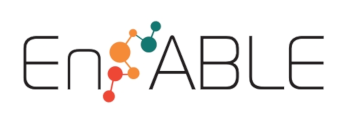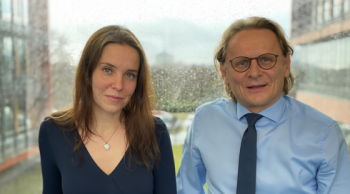01 Feb 2021 - The State of Hesse funds research network on inflammation and infection
As announced today, scientists from Goethe University Frankfurt were successful in securing funding for the ENABLE cluster project which aims at identifying disease-relevant key targets and enabling innovative therapeutic strategies. For the next four years, the project will be supported with 8 M€ by the State of Hesse as part of the cluster initiative to prepare for the next round of the federal Excellence Strategy. The ENABLE research program is centered around inflammation, infection and cellular homeostasis, which are all impacting on a broad range of diseases, many of them with high unmet medical need. It relies on innovative technologies and close team work between basic and translational research.
“This generous financial support will enable us to utilize modern tools, such as chemical probes and biologics, for a new wave of translational drug discovery”, said IBC2 director Ivan Đikić, who shares the spokesperson responsibility with Maike Windbergs from the Institute of Pharmaceutical Technology at the Riedberg Campus. Windbergs added: “These tools enable us to interfere with cellular functions at a hitherto unknown level of specificity and will help us to gain a more precise insight into inflammation processes which determine the outcome of many diseases.”
The success of this integrated translational research is based on the participation of scientists from five faculties at Goethe University and partners such as the Max Planck Institute of Biophysics, the Fraunhofer Institute for Translational Medicine and Pharmacology, the Frankfurt Institute for Advanced Studies (FIAS) and the Georg Speyer Haus (GSH). The future plan for ENABLE is to compete for a Cluster of Excellence within the next round of the federal Excellence Strategy.

